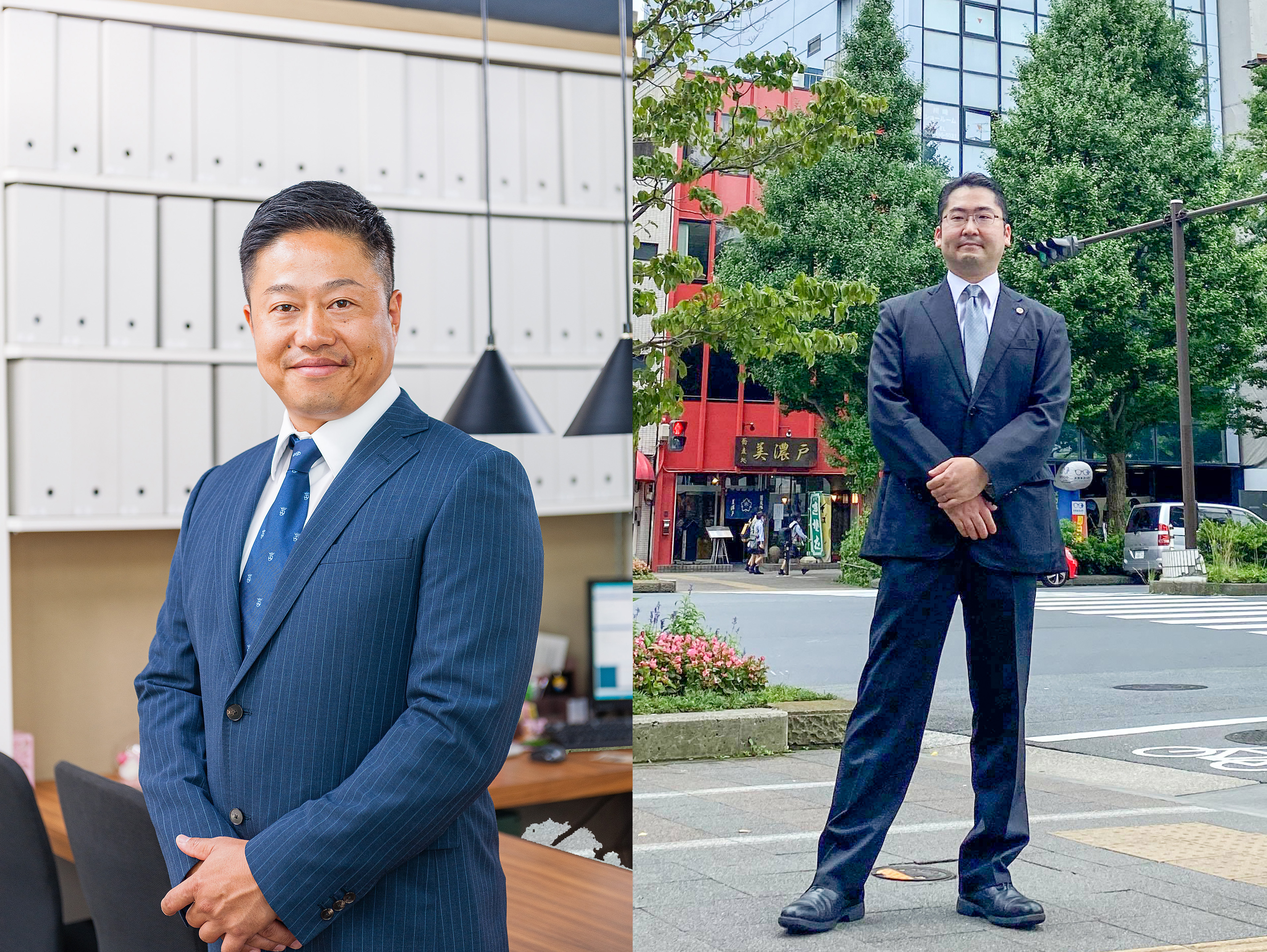Yokohama has a reputation as an open-minded, cosmopolitan city, welcoming newcomers from across Japan and around the world. The reality is sometimes less carefree, especially for those caught in cross-cultural conflicts. How would you resolve a dispute with your landlord? Labor relations can be fraught with complex problems. Even more troubling are family issues, such as divorce and inheritance. Situations such as these are hard enough for the ordinary Japanese without specialized legal or welfare knowledge. They can seem insuperable for foreigners who are less familiar with Japanese custom and law.
Tomoya Yamada and Kei Sumikawa understand these obstacles and have been collaborating for years to help overcome them. They work closely with clients of all nationalities to bridge the gaps between problems and solutions. Sumikawa heads his own law firm, based in Kawasaki, which specializes in disentangling snarled divorce, inheritance, and labor problems throughout Kanagawa. Yamada’s property management company acts as an intermediary between renters and landlords, handling cases involving foreigners as well as Japanese. The two men share the same outlook: Yokohama should live up to its reputation and become more open to the world at the grassroots level. It can thus be an example to other cities across Japan, even those without Yokohama’s long history as an international harbor.
Sumikawa, who grew up in the Netherlands and attended international schools, presents a serious, reserved, and cerebral demeanor. He is articulate and thoughtful. For years he has organized English-speaking professionals to create a business community without artificial boundaries. He takes on convoluted cases that other lawyers often disdain, as they take years to unravel and promise little income. Examples include divorce and inheritance altercations involving two nationalities, as well as how to claim pensions overseas. A recent case involved a Japanese citizen living in the U.S. who inherited an old house on leased land and was having trouble with the landlord. This had been a legal dispute for 20 years before Sumikawa became involved, and it took many years to resolve. He also advises teachers, including those at international and English conversation schools, about their legal employment rights, preventing unjust termination. In general, Japan’s labor laws protect employees, but both sides are often ignorant of the law. Trusted legal advice is valuable.
Yamada has an enthusiastic and sometimes boisterous personality. He is infectiously cheerful and upbeat. Although a multi-generation Hamakko, he lived for years in Detroit and Singapore, and focused on environmental sustainability at a university in upstate New York. In high school he “studied English like crazy,” in his own words, enabling him to work overseas in various fields. “I want to be a human being who can contribute–to the world, to Japan, and to Yokohama.” The foreign renters–Chinese, Thai, and Vietnamese among them–on whose behalf his company negotiates and finds guarantors would certainly agree that he has made an invaluable contribution. Yamada’s Corporate Social Responsibility (CSR) outreach extends even to maintaining a free lending library (Aozora Bunko) at his office. He has built a network of like-minded businesses and individuals, and he has firm allies at the Kanagawa Housing Support Center for Foreign Residents, based at the YMCA in central Yokohama and offering advice in six languages.
The two men met thanks to Seasider many years ago and have been friends and colleagues ever since. They share not only a vision of a more inclusive and diverse city but also a love of craft beer and the best of Yokohama’s many delicious restaurants. With civic leaders like them, the city’s future looks bright.


